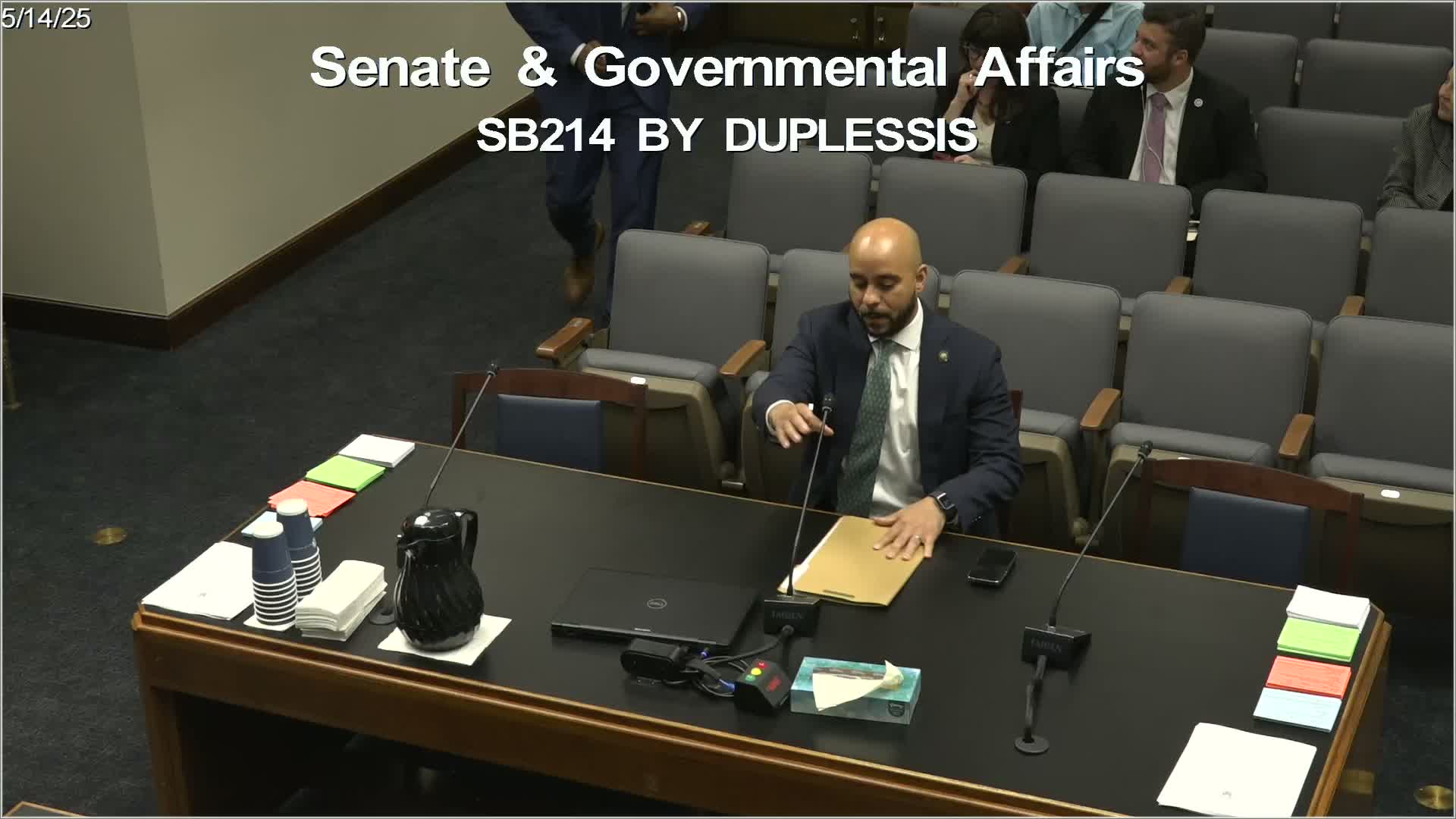Article not found
This article is no longer available. But don't worry—we've gathered other articles that discuss the same topic.
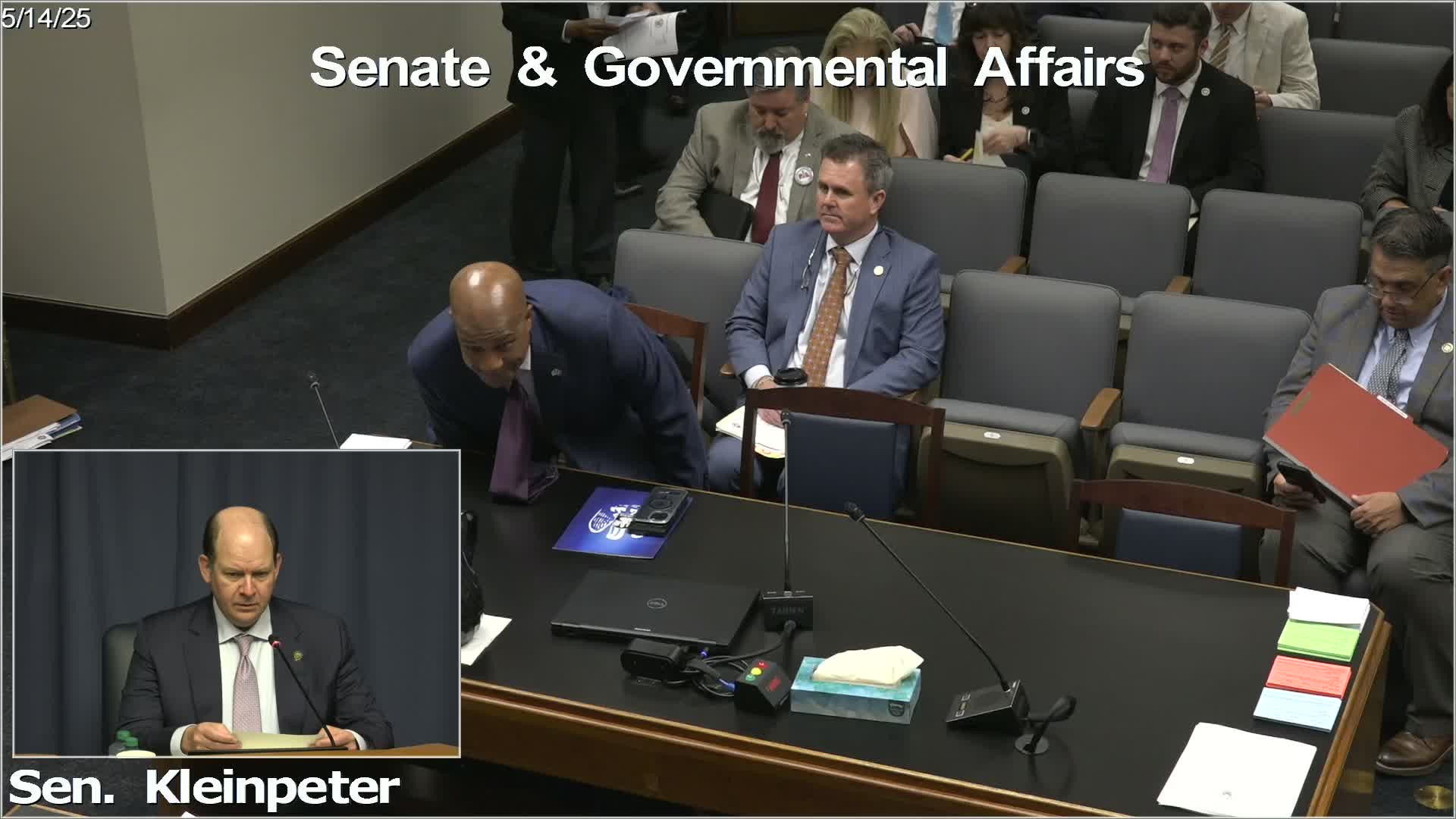
Committee holds confirmation hearings for Board of Regents and community-technical college nominees; focus on workforce and rural access
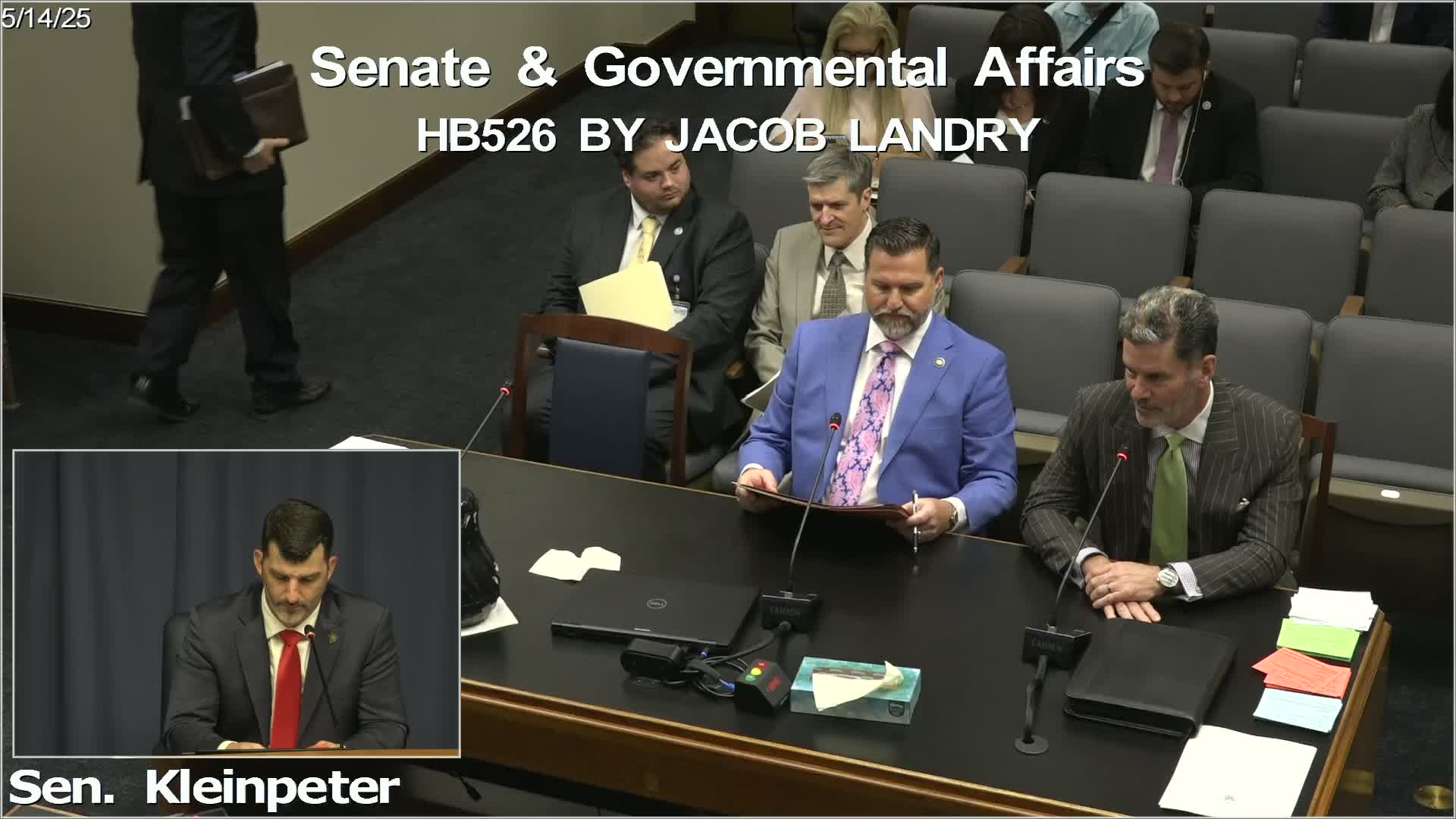
Committee advances bill to tighten party-recognition rules and dissolve Independent Party designation
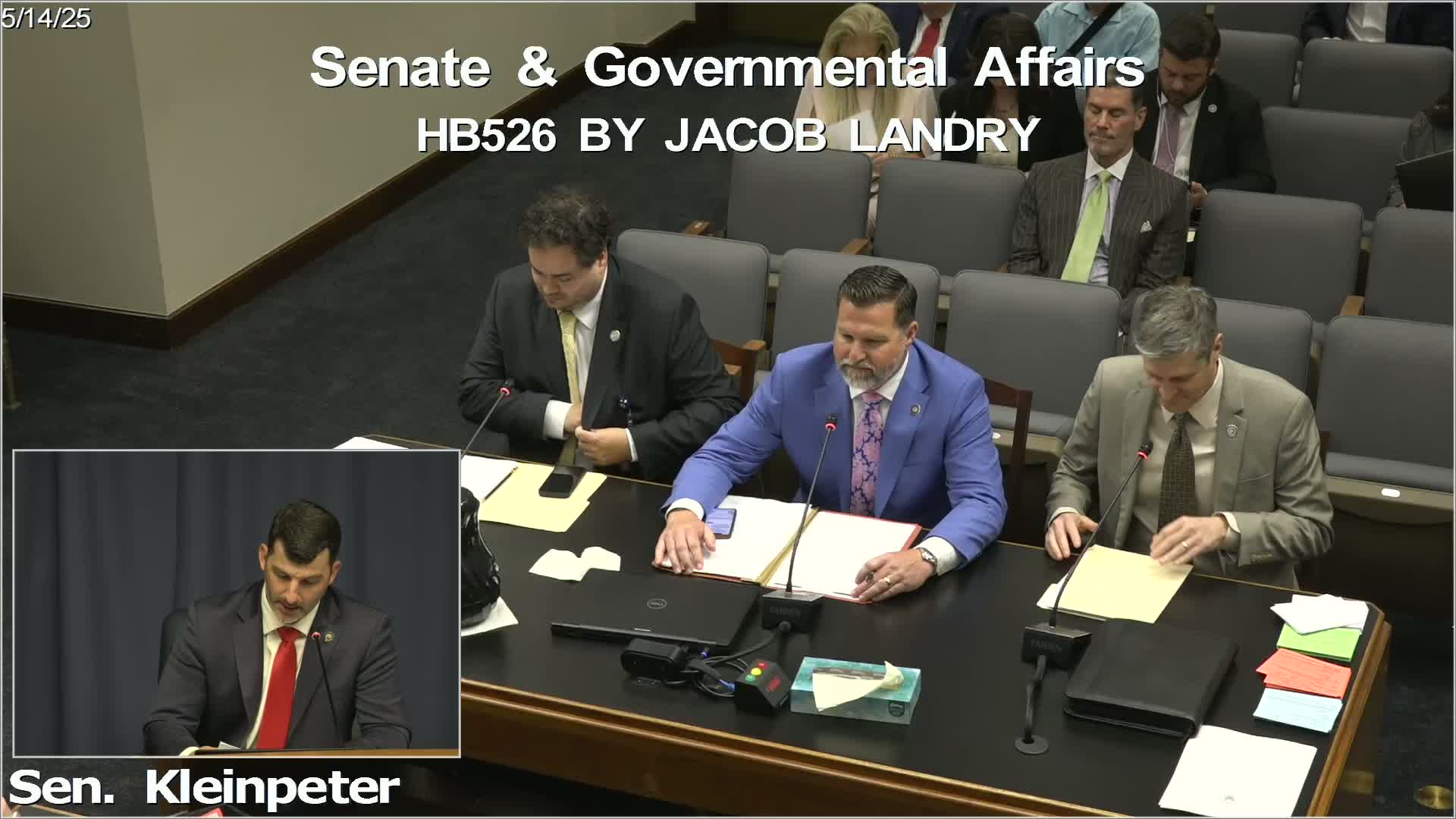
Committee backs bill to make statewide website the official journal for public notices, adopts transparency safeguards
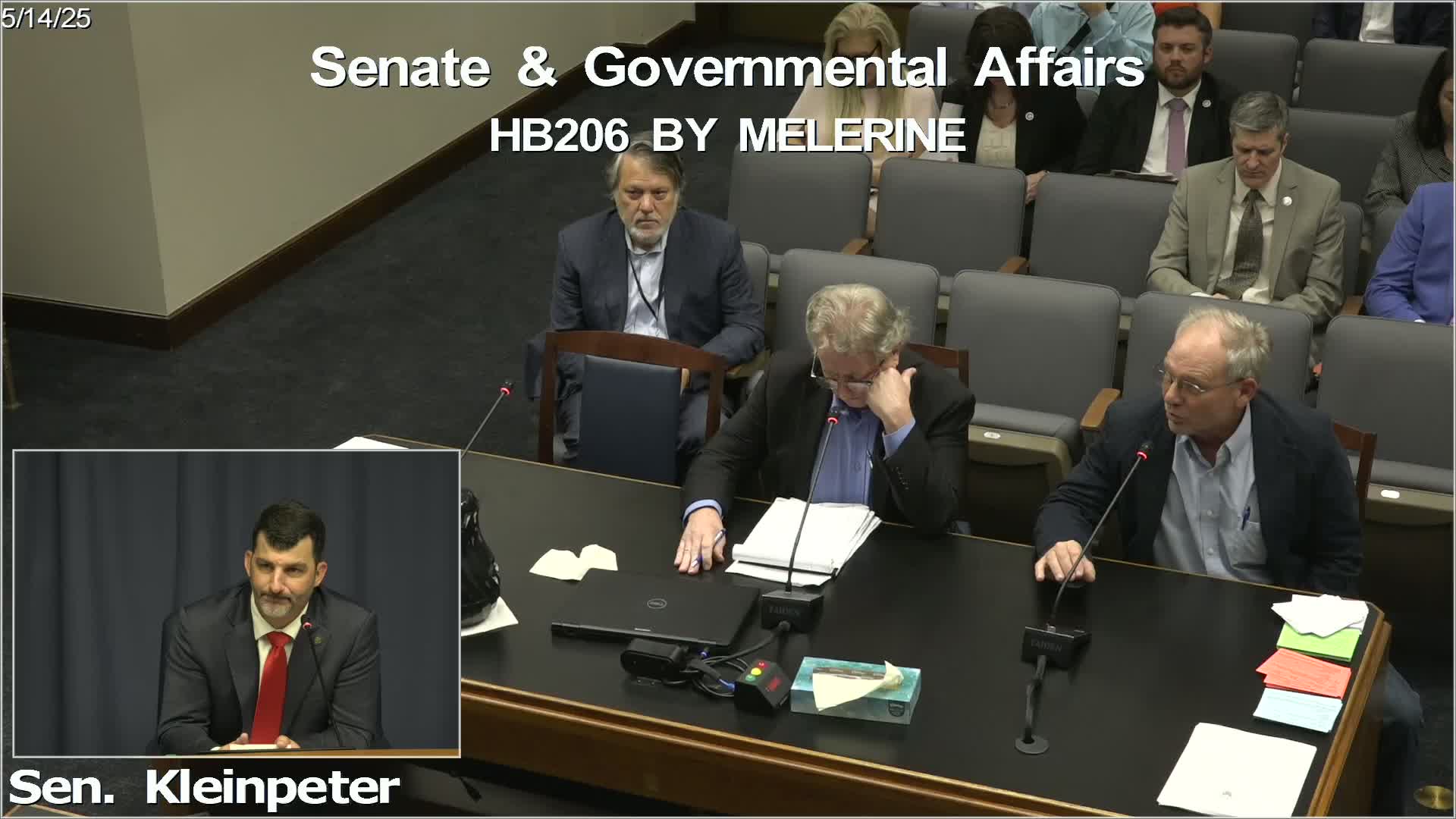
Bill would require legislative approval for consent decrees that change Louisiana election law; committee reports measure
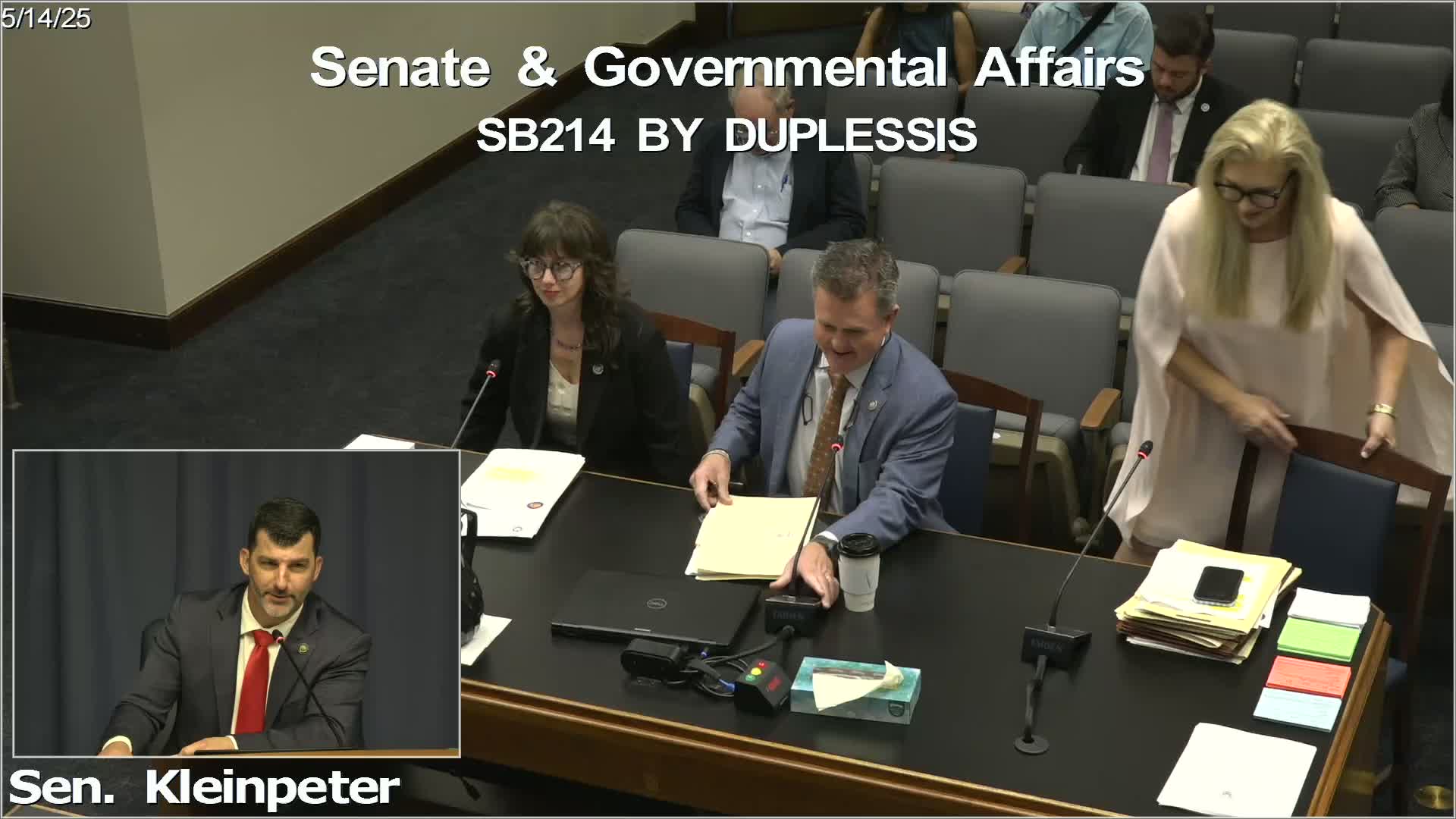
Senate committee advances broad election-code overhaul with technical amendments
